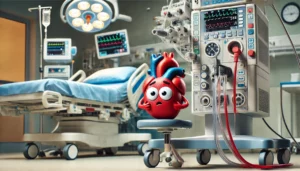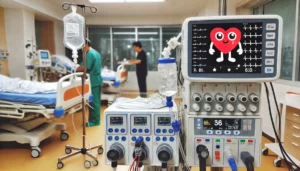
Standardized Therapies After ECMO Program (STEP): A Novel Approach to Pediatric Post-ECMO Care
This study evaluated the effectiveness of the Standardized Therapy after ECMO Program (STEP), a structured discharge pathway for pediatric ECMO survivors. It compared compliance with post-ECMO care guidelines before and after STEP implementation in a U.S. pediatric hospital. After STEP, compliance increased for neurodevelopmental testing, neurology and audiology evaluations, and referrals for therapy services. The program significantly improved both inpatient and outpatient follow-up, ensuring comprehensive post-ECMO care.










